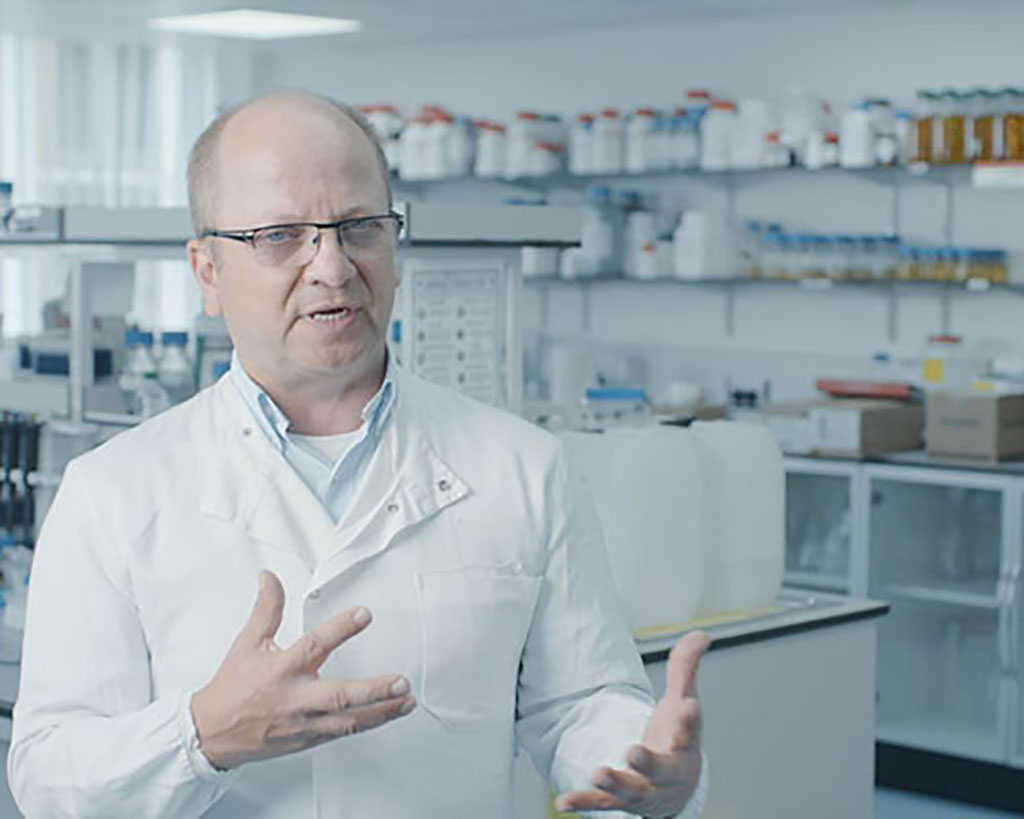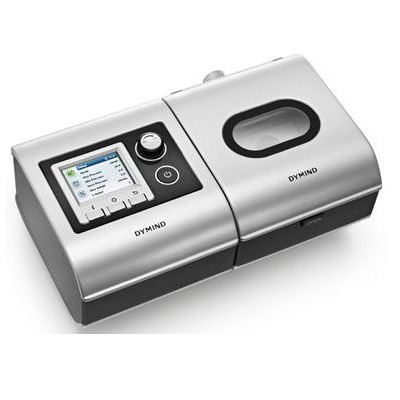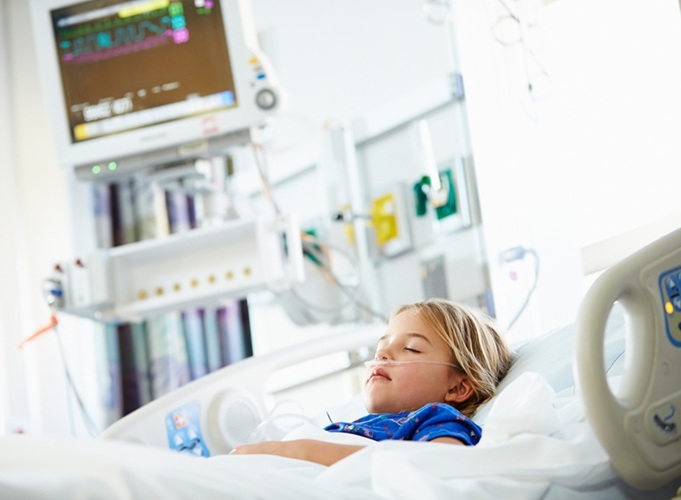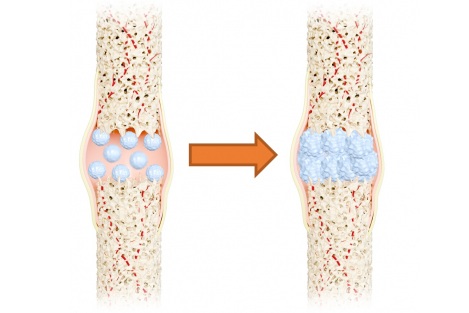Ground-Breaking 'Pan-Corona Antivirals' Could Stop SARS-CoV-2 in Its Tracks When Used at First Sign of COVID-19 Symptoms
|
By HospiMedica International staff writers Posted on 14 Apr 2021 |

Image: Professor Imre Berger (Photo courtesy of University of Bristol)
Clinical trials will shortly be launched into pivotal, cost-effective antiviral treatments for COVID-19 following the discovery of a molecule which changes the shape of the SARS-CoV-2 spike protein and in so doing inhibits the virus’ ability to enter cells.
A team of top scientists from the University of Bristol (Bristol, UK) who made the recent breakthrough discovery has founded Halo Therapeutics Ltd. (Bristol, UK), a new biotech company for developing ground-breaking and newly patented potential treatments for coronavirus. Studies show the treatments are potentially 'pan-corona antivirals' in that they will work against all coronavirus strains - including the highly contagious UK, South African and Brazilian variants. The company is preparing for clinical trials. If approved, the antivirals could be used by patients globally at the first sign of COVID-19 symptoms - stopping the virus in its tracks.
The team of scientists had found that exposing the SARS-CoV-2 (coronavirus) virus to a free fatty acid called linoleic acid locks the virus’ spike protein into a closed, non-infective form stopping it in its tracks. The company is now preparing to make an application to start clinical trials with infected patients. If proven to be effective, the antivirals could be used by people of all ages worldwide at the first sign of COVID-19 symptoms, or if they have been in contact with someone with the virus, preventing the virus from taking hold and stopping further transmission.
Lab studies indicate the antiviral will work against all pathogenic coronavirus strains including the highly contagious UK, South African and Brazilian variants by preventing the virus from penetrating cells in the nose, throat and lungs. The treatments under development by Halo Therapeutics include a nasal spray and an asthma-type inhaler, and offer the possibility of a game-changing pan-coronavirus antiviral to treat patients at all stages of the disease and to reduce the transmission of the virus. The Halo Therapeutics team is currently engaging investors to help finance multiple parallel clinical trials. If approved, the antiviral treatments could potentially start rolling out to patients globally.
"The aim of our treatment is to significantly reduce the amount of virus that enters the body and to stop it from multiplying," explained Professor Imre Berger, Director of the Max Planck-Bristol Centre for Minimal Biology at Bristol and one of the team leading the drug’s development. "Then, even if people are infected with the virus or exposed to it, they will not become ill because the antiviral prevents the virus from spreading to the lungs and beyond. Importantly, because the viral load will be so low it will likely also stop transmission."
"Our vision is that at the first sign of the disease, whether you come into contact with someone who has COVID-19 or you have early symptoms, you would self-medicate at home to stop the virus in its tracks and prevent you from getting ill," added Professor Christiane Berger-Schaffitzel from Bristol's School of Biochemistry.
Related Links:
University of Bristol
A team of top scientists from the University of Bristol (Bristol, UK) who made the recent breakthrough discovery has founded Halo Therapeutics Ltd. (Bristol, UK), a new biotech company for developing ground-breaking and newly patented potential treatments for coronavirus. Studies show the treatments are potentially 'pan-corona antivirals' in that they will work against all coronavirus strains - including the highly contagious UK, South African and Brazilian variants. The company is preparing for clinical trials. If approved, the antivirals could be used by patients globally at the first sign of COVID-19 symptoms - stopping the virus in its tracks.
The team of scientists had found that exposing the SARS-CoV-2 (coronavirus) virus to a free fatty acid called linoleic acid locks the virus’ spike protein into a closed, non-infective form stopping it in its tracks. The company is now preparing to make an application to start clinical trials with infected patients. If proven to be effective, the antivirals could be used by people of all ages worldwide at the first sign of COVID-19 symptoms, or if they have been in contact with someone with the virus, preventing the virus from taking hold and stopping further transmission.
Lab studies indicate the antiviral will work against all pathogenic coronavirus strains including the highly contagious UK, South African and Brazilian variants by preventing the virus from penetrating cells in the nose, throat and lungs. The treatments under development by Halo Therapeutics include a nasal spray and an asthma-type inhaler, and offer the possibility of a game-changing pan-coronavirus antiviral to treat patients at all stages of the disease and to reduce the transmission of the virus. The Halo Therapeutics team is currently engaging investors to help finance multiple parallel clinical trials. If approved, the antiviral treatments could potentially start rolling out to patients globally.
"The aim of our treatment is to significantly reduce the amount of virus that enters the body and to stop it from multiplying," explained Professor Imre Berger, Director of the Max Planck-Bristol Centre for Minimal Biology at Bristol and one of the team leading the drug’s development. "Then, even if people are infected with the virus or exposed to it, they will not become ill because the antiviral prevents the virus from spreading to the lungs and beyond. Importantly, because the viral load will be so low it will likely also stop transmission."
"Our vision is that at the first sign of the disease, whether you come into contact with someone who has COVID-19 or you have early symptoms, you would self-medicate at home to stop the virus in its tracks and prevent you from getting ill," added Professor Christiane Berger-Schaffitzel from Bristol's School of Biochemistry.
Related Links:
University of Bristol
Latest COVID-19 News
- Low-Cost System Detects SARS-CoV-2 Virus in Hospital Air Using High-Tech Bubbles
- World's First Inhalable COVID-19 Vaccine Approved in China
- COVID-19 Vaccine Patch Fights SARS-CoV-2 Variants Better than Needles
- Blood Viscosity Testing Can Predict Risk of Death in Hospitalized COVID-19 Patients
- ‘Covid Computer’ Uses AI to Detect COVID-19 from Chest CT Scans
- MRI Lung-Imaging Technique Shows Cause of Long-COVID Symptoms
- Chest CT Scans of COVID-19 Patients Could Help Distinguish Between SARS-CoV-2 Variants
- Specialized MRI Detects Lung Abnormalities in Non-Hospitalized Long COVID Patients
- AI Algorithm Identifies Hospitalized Patients at Highest Risk of Dying From COVID-19
- Sweat Sensor Detects Key Biomarkers That Provide Early Warning of COVID-19 and Flu
- Study Assesses Impact of COVID-19 on Ventilation/Perfusion Scintigraphy
- CT Imaging Study Finds Vaccination Reduces Risk of COVID-19 Associated Pulmonary Embolism
- Third Day in Hospital a ‘Tipping Point’ in Severity of COVID-19 Pneumonia
- Longer Interval Between COVID-19 Vaccines Generates Up to Nine Times as Many Antibodies
- AI Model for Monitoring COVID-19 Predicts Mortality Within First 30 Days of Admission
- AI Predicts COVID Prognosis at Near-Expert Level Based Off CT Scans
Channels
Critical Care
view channel
Microscopic DNA Flower Robots to Enable Precision Medicine Delivery
Creating materials that can sense, adapt, and respond to their environment like living organisms has long challenged scientists. Traditional synthetic materials lack the complexity and responsiveness found... Read more
Origami Robots to Deliver Medicine Less Invasively and More Effectively
Delivering medicine to ulcers or other internal sites often requires invasive procedures that can disrupt surrounding tissues and lengthen recovery times. Traditional magnetic actuators used in soft robotics... Read moreSurgical Techniques
view channel
Novel Glue Prevents Complications After Breast Cancer Surgery
Seroma and prolonged lymphorrhea are among the most common complications following axillary lymphadenectomy in breast cancer patients. These postoperative issues can delay recovery and postpone the start... Read more
Breakthrough Brain Implant Enables Safer and More Precise Drug Delivery
Delivering medication directly to specific regions of the brain has long been a major challenge in treating neurological disorders. Current implants and infusion systems typically reach only one or two... Read morePatient Care
view channel
Revolutionary Automatic IV-Line Flushing Device to Enhance Infusion Care
More than 80% of in-hospital patients receive intravenous (IV) therapy. Every dose of IV medicine delivered in a small volume (<250 mL) infusion bag should be followed by subsequent flushing to ensure... Read more
VR Training Tool Combats Contamination of Portable Medical Equipment
Healthcare-associated infections (HAIs) impact one in every 31 patients, cause nearly 100,000 deaths each year, and cost USD 28.4 billion in direct medical expenses. Notably, up to 75% of these infections... Read more
Portable Biosensor Platform to Reduce Hospital-Acquired Infections
Approximately 4 million patients in the European Union acquire healthcare-associated infections (HAIs) or nosocomial infections each year, with around 37,000 deaths directly resulting from these infections,... Read moreFirst-Of-Its-Kind Portable Germicidal Light Technology Disinfects High-Touch Clinical Surfaces in Seconds
Reducing healthcare-acquired infections (HAIs) remains a pressing issue within global healthcare systems. In the United States alone, 1.7 million patients contract HAIs annually, leading to approximately... Read moreHealth IT
view channel
Printable Molecule-Selective Nanoparticles Enable Mass Production of Wearable Biosensors
The future of medicine is likely to focus on the personalization of healthcare—understanding exactly what an individual requires and delivering the appropriate combination of nutrients, metabolites, and... Read moreBusiness
view channel
Philips and Masimo Partner to Advance Patient Monitoring Measurement Technologies
Royal Philips (Amsterdam, Netherlands) and Masimo (Irvine, California, USA) have renewed their multi-year strategic collaboration, combining Philips’ expertise in patient monitoring with Masimo’s noninvasive... Read more
B. Braun Acquires Digital Microsurgery Company True Digital Surgery
The high-end microsurgery market in neurosurgery, spine, and ENT is undergoing a significant transformation. Traditional analog microscopes are giving way to digital exoscopes, which provide improved visualization,... Read more
CMEF 2025 to Promote Holistic and High-Quality Development of Medical and Health Industry
The 92nd China International Medical Equipment Fair (CMEF 2025) Autumn Exhibition is scheduled to be held from September 26 to 29 at the China Import and Export Fair Complex (Canton Fair Complex) in Guangzhou.... Read more
















